- হুমায়ূন আহমেদ
- মুহম্মদ জাফর ইকবাল
- রবীন্দ্রনাথ ঠাকুর
- বিভূতিভূষণ বন্দ্যোপাধ্যায়
- মোহাম্মদ নাজিম উদ্দিন
- হরিশংকর জলদাস
- শাহরিয়ার কবির
- সাদাত হোসাইন
- সৈয়দ শামসুল হক
- Sidney Sheldon
- Sir Henry Rider Haggard
- Stephen King
- অনীশ দাস অপু
- আকবর আলি খান
- আনিসুল হক
- আল মাহমুদ
- আলী রীয়াজ
- আসিফ নজরুল
- আসিফ মেহ্দী
- ইমদাদুল হক মিলন
- কাজী আনোয়ার হোসেন
- কিশোর পাশা ইমন
- দীপেন ভট্টাচার্য
- দীপু মাহমুদ
- রকিব হাসান
- শামসুদ্দীন নওয়াব
- মোশতাক আহমেদ
- মুনতাসীর মামুন
- মহাদেব সাহা
- মহিউদ্দিন আহমদ
- বাদল সৈয়দ
- See More…

বাঙলা নাট্যকোষ
500₹ Original price was: 500₹.430₹Current price is: 430₹.
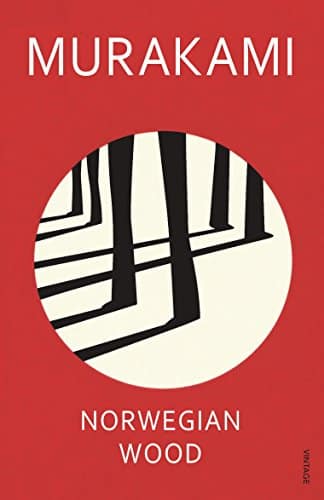
Norwegian Wood
599₹ Original price was: 599₹.499₹Current price is: 499₹.
Sapiens by Yuval Noah Harari
By:
| Writer |
|---|
| Format |
Paperback |
|---|
699₹ Original price was: 699₹.599₹Current price is: 599₹.
Tags: Sapiens, Vintage, Yuval Noah Harari
- Cash on Delivery
- 7 Days Easy Return
- For Pre-order Books Need 15 to 45 Days to Deliver
- 100% Original
Related Products
থেবস অ্যাট ওয়ার
শতবর্ষে চলচ্চিত্র ২
2,000₹বাংলার শত উদ্ভিদ
| Publisher : |
Vintage |
|---|---|
| Language : |
English |
| Page : |
512 |
| Formate : |
Paperback |
| ISBN-13 : |
9780099590088 |
| Reading age : |
Customer suggested age: 16 years and up |
| Item Weight : |
350 g |
| Dimensions : |
19.8 x 12.9 x 3.06 cm |
| Country of Origin : |
United Kingdom |
| Writer | |
| Genre | |
| Format |
Paperback |
4.6
Rated 4.6 out of 5
59 reviews
Rated 5 out of 5
40
Rated 4 out of 5
15
Rated 3 out of 5
3
Rated 2 out of 5
0
Rated 1 out of 5
1
59 reviews for Sapiens by Yuval Noah Harari
Clear filters
Add a review Cancel reply

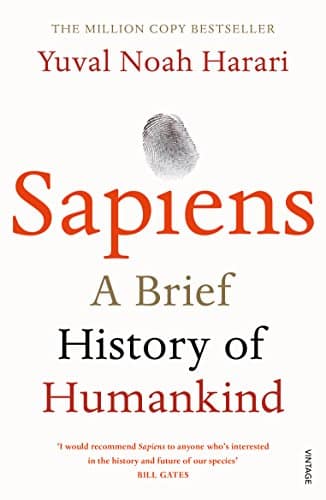
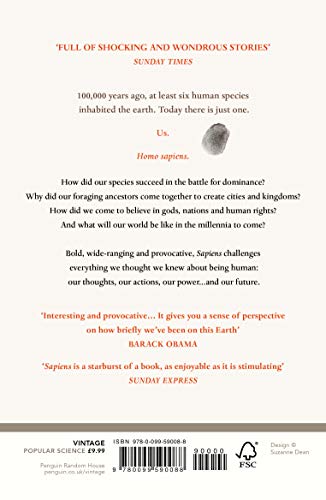
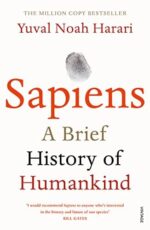


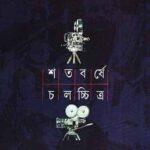

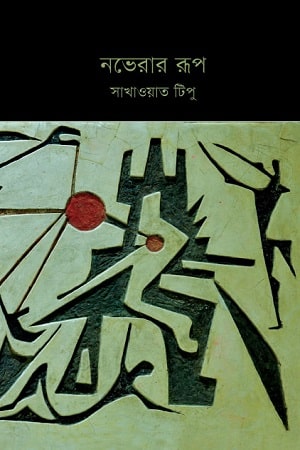

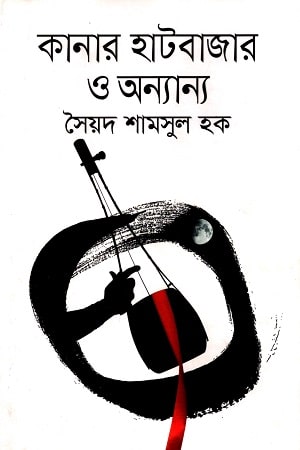
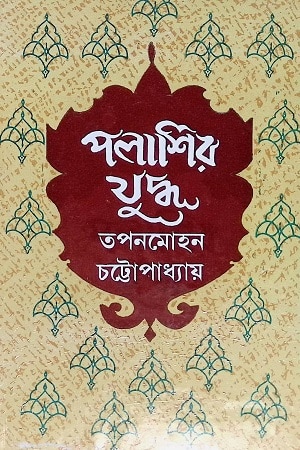


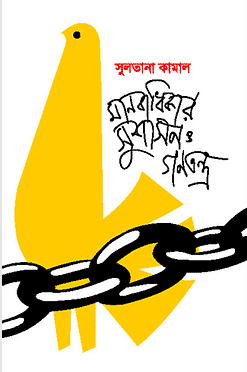

Alriktimo –
4.0 out of 5 stars
What’s most important to know?
Take it slow. If you are going to want to understand and find this book helpful then have an open mind it’s not just with this book but especially books such as these that give meaning to human existence and challenge certain ideologies by getting and understanding them at their core.Let me put it in simple words. This book can change your life and make you question things at their core(not everyone) to understand and put them in the proper perspective. The subjective reality that we live in(inside our very own brains) and the notion of fighting for it makes no sense beyond our beliefs and the change it’s going to bring to our objective reality, of course, that doesn’t mean that you have to kill your beliefs and do whatever you like. That’s not real life, is it? It’s really odd when we go deep, we can’t try and catch on to something there because it’s mostly empty or at least we don’t see it yet. This book brought me some deep-rooted pain.Aware! People who are swinging their moods by questioning whether a supernatural creator exist can get a real kick in the head there so take it slow!
8 people found this helpful
Amazon Customer –
4.0 out of 5 stars
Very informative and broadens understanding
I loved every page of this book. By giving an account of the macro perspective, this book humbles us by showing us where we stand in the grand scheme of things. It also shows us how factors, we might not have thought of in our dizziest dreams, shape as deeply as individuals. It has broadened my vision and made me more sensitive to my limitations and habits, in the very process helping me be more flexible yet accepting of certain other things as they are. So many things over centuries of history make us who we are physically, psychologically and socially. Yet some pages also show there is hope to transcend all and not be limited by worldly evolution in every way.
2 people found this helpful
Amazon Customer –
5.0 out of 5 stars
Must read for all people who desires to understand our species.
Ordered book based on reviews from people. Once I started reading it, I realized that it is one of the amazing books exploring every aspects of Sapiens Life on this planet.Yuval writes with crystal clarity and deep thought about every aspect, be it survial and flourishing of sapiens over neanderthal, about money, about religion and very briefly about our future…Highly Recommend to all for reading.
ANU LAL (Bestselling Author) –
5.0 out of 5 stars
From human to posthuman
Sapiens underscores the Cognitive Revolution as the decisive geological/biological event that carved out a trajectory for Homo sapiens. The author raises several arguments to suggest that an animal of no special importance became a geological force 1500 years ago. The book tries to answer a few questions such as:1. What is the significance of addressing human history regarding the cognitive revolution?2. How is the agricultural revolution significant? What are the disadvantages the agricultural revolutions brought to humanity?3. What’s the importance of unification of a large number of members of the Homo Sapiens?4. How does the scientific revolution endow the human species with superhuman potential?Each question is dealt with a clarity that could be attributed to the skill of the writer. Under several crucial subsections, each of these questions receives deeper elaborations. The text analyses the rise of the early species of humans under the part that discusses cognitive revolution. Several species of humans populated the earth until 70000 years ago when the Cognitive Revolution was triggered in Homo Sapiens in Africa. Gradually, Sapiens dominated all the other species of humans on the earth. In his evocative language, the author points out many research outcomes that prove that just as the only extant human species, the sapiens crossed paths with any of the other ancestral species of humans the population of those other species has deteriorated. Although the author does not point out the exact reasons for the disappearance of all the other early human species the certainty that their demise and their contiguity with Homo Sapiens is indisputable.The point of view that the author adopts to describe the agricultural revolution is a multidisciplinary one. When it says the agricultural revolution is history’s biggest fraud, one has to wonder if history itself is alive, has a mind of its own. The major difference between animals and human sapiens is that sapiens can cooperate, coordinate, and function as a system under an idea. Animals are limited by a certain biological determinism. For example, a large number of ants can cooperate, often better than humans. However, the laws that govern their genes and biological systems bind them to function with a queen ant. No ant colony would ever revolt against an ant queen. Homo sapiens overthrew monarchies and ruling parties with a set of ideas or stories. Religion and money are shown as two major forces that played in favour of unifying sapiens across the globe.Finally, the scientific revolution transforms the potential of sapiens and makes them “god-like” in their capability to transcend their natural barriers. By using advanced instruments on their body sapiens can magnify their natural strength, be it vision, heartbeats, or memory. The book argues that 1500 years ago, sapiens became a geological force. The final triumph was not just that of science in unifying and strengthening sapiens. There was yet another claim for the space of influence- from colonialism. The relationship between science and colonialism is narrated in detail.
One person found this helpful
Rohit Sharma –
5.0 out of 5 stars
Youve got to know the reality of our times and past.
This book can very well be reviewed and summed up in one sentence: We (Home Sapiens) have screwed this planet big time and unfortunately there is no going back hence it all is coming to an end – very soon. I do not like reading horror at all and this unfortunately is one of the scariest books I have ever read in my life – it scared the shit out of me big time the way Yuval has covered the History, where and how it all started to the present and a glimpse on the future too as in which direction we are heading. I am sure if you have read this book – you will totally agree with me here. Totally loved the clarity of his thoughts and how subtly he has put his point forward – kudos to him. For some reason I have postponed my reading of Darwin’s “Origin of Species”, got it like two years back, still has it on my Kindle, have read couple of books inspired by his theory yet I am yet to read the one which started it all I guess. I have even read Matt Ridley’s “The Red Queen” which talks about the similar subject but isn’t scary like this one. And let me finish this by saying that I am NOT AT ALL looking forward to Yuval’s next “Homo Deus: A Brief History of Tomorrow” that title itself is telling the whole story and imagine how scary it will be :).As I picked up this one which came highly recommended from loads of people, found it a little boring and a kind of a slow starter. I always thought Yuval must be a Japanese, Chinese or a Korean may be but to my shock and surprise he turned out to be an Israeli. Wow! I guess this is my first from someone from that part of the world and its incredible. The kind of research he must have done to come out with this perfect book which should be kept in a indestructible titanium box (should be Nuclear resistant too), so once the Homo Sapiens disappear from the face of this planet like the Dinosaurs did and a lot of animals and birds are getting extinct by the day do too – whoever finds this planet later should get an idea who we were and what we did to this planet. He hasn’t left anything that needs a mention and has covered so much in those little over 400 pages that I found it incredible. The book after a boring and slow start just keeps getting better and by the time it ends – I actually wanted it to go on and on and I believe thats what he did with the sequel which I vow not to read as I have such a fragile heart and just cant take chances. This book should be made a mandatory read in school and colleges right before the next generation comes out and does exactly the same thing what we did and joins our hands in further destroying this planet. Although he doesn’t offer any kind of solution in this one but at least we know what we are doing wrong now. But the $ million question remains unanswered – Are we listening to him and the likes? Is there a way all this can be stopped?Terrific book and a must must read for all.A definite 5/5 from me with a double thumbs up recommendation.If you have read it already – do let me know how you liked it and are you planning to read the sequel? 🙂
Jalim_Duniya –
1.0 out of 5 stars
A Disappointing and Biased Historical Account
As an avid enthusiast of human history and the dawn of sapiens, I was excited to delve into Yuval Noah Harari’s book “Sapiens” and explore the journey of humanity from its earliest days. However, my experience with the book left me profoundly disappointed and frustrated.Firstly, the book’s title and description led me to believe that it would primarily cover the history of human kind from the sapiens age. Unfortunately, I found that a significant portion of the content was focused on events from the 18th and 19th centuries, which are well-documented in numerous other sources. This was not the comprehensive historical exploration I was hoping for, as I had already encountered this information elsewhere.One of the most glaring issues I encountered was the evident bias throughout the narrative. Harari’s portrayal of historical events and religious perspectives seemed to reflect a particular agenda rather than an impartial presentation of facts. As a reader seeking an objective account of human history, I found this bias both disheartening and misleading.Moreover, it was evident to me that the research into certain regions and religions was lacking, particularly when it came to India and Hinduism. Given the profound influence that Indian civilization and Hinduism have had on the world, their treatment in the book felt superficial and incomplete. I believe that a more comprehensive understanding of these subjects would have enriched the narrative and made it more well-rounded.Similarly, I was troubled by the book’s representation of Islam as an overwhelmingly important religion. While Islam indeed holds significance in world history, it should not overshadow or diminish the importance of other major religions and belief systems. This skewed portrayal further contributed to the sense of bias and misrepresentation present in the book.Regrettably, these issues culminated in my decision to abandon the book midway through reading. The lack of objectivity and the significant historical gaps were simply too frustrating to overlook.While “Sapiens” may resonate with some readers, particularly those with a limited knowledge of history, it is essential to approach it with a critical mind and seek additional sources to gain a more balanced understanding of the topics discussed. As for myself, I have chosen to part ways with the book by disposing of it, as it doesn’t align with the educational and factual reading experience I had hoped for.In conclusion, I cannot recommend “Sapiens” for readers seeking a comprehensive and unbiased history of human kind. Instead, I encourage individuals to explore alternative sources that offer a more objective perspective on this fascinating subject.
9 people found this helpful
TEJA KOONATI –
4.0 out of 5 stars
nice book on human history in brief .
author explains the human history from before the homosapiens existing to and explain spread of homosapiens from south of africa to europe , asia, and to austrila and agriculture revolution and industrial revolution and domination of europian imperialism and spread of capitalism to entire world and lastly explains scientific revolution
Kanhaiya tiwari –
5.0 out of 5 stars
Fantastic book! Everyone shoul read it!
This book is amazing, it Yuval Noah harari deals with evolutionary biology, prehistoric era,scent of money, scientific revolution and many more, it’s going to change your perspective if you buy it!
Kishore –
5.0 out of 5 stars
Most probably the best book on Human Beings
Initially, I started reading ‘Sapiens’ to improve my vocabulary but it did change my perspective of every aspect of life from the daily routine to culture to world leaders. I would rate this book 10 out of 10 and would definitely recommend this to everyone.
Vyoma Hadkar –
4.0 out of 5 stars
Finally I read this, and it opened my eyes.
Hello everyone. I just completed this yesterday and felt that everyone should really read about the evolution. Yuval gives a brilliant perspective on how we evolved, conquered seas, established empires, troubled natives of the lands and how we got truly domesticated by a plant called wheat. Today, the animals and birds are reclaiming their lands and air if you may…if you read this book you will think this is finally justice to how we have behaved with the world. In the end, Yuval boils down to something very basic – Contentment and happiness that Buddha preached. He also talks about how the world is heading to a crazy future of nonsensical projects in the name of medicine and saving people’s lives. The book was released in 2011 and now more than ever people are reading it. Coincidence? I think not. As a collective consciousness we are driven to this book because it helps us understand the mistakes we made and perhaps how we can better them. It was only last year we saw the Polar Bear in the Nat Geo feed looking bony and starved because the melting of the arctic ice…it was the most abnormal thing to have witnessed. Also, it was just last year Greta Thunberg gave a soul stirring speech at the UN which went viral. Why did it go viral? Because the consciousness that we all have is a single one. Her outburst was us crying inside for what we are doing to this world. We can learn now, make a difference now…we have plenty of time to think and internalise. Why buy plastic when we can buy stainless steel, plastic making companies can start alternate environment friendly production of items. Look at us in the lockdown! Are we even using any of the fancy stuff we bought and paid for with big money. We are surviving on essentials. We aren’t really complaining. We are hoping that after this lockdown we can meet our friends and family and just give them a hug♥️🤗Let’s start small, let’s relook at how we buy and how people do business, maybe then we can still have this world to enjoy and convince God that we truly deserve this world. #happyreading #lockdownreading #eyeopening #sapiens
Taniya Moudgil –
5.0 out of 5 stars
Nice book to read
The media could not be loaded.
Liked the product
ANIMIKH –
5.0 out of 5 stars
Wonderful book
A must read. It will open many new windows of thought.
Priyam MondalPriyam Mondal –
4.0 out of 5 stars
Must read
got this in right condition and original copy…cocoblu retailers never disappoints me
sue –
5.0 out of 5 stars
Best books
Good books for icse class
One person found this helpful
Leela –
5.0 out of 5 stars
Interesting read
Human evolution explained in a very interesting manner
Vikash Agarwal –
5.0 out of 5 stars
An eye opener
This books dives deep into human history & talks about the human race collectively. It tries to answer lot of questions on why we are what we are today.It changes our perspective towards many things in life. It gives an holistic view on life in general
Suji Grammy –
5.0 out of 5 stars
Impressed
I am happy with the delivery.Started reading the book, after reading few pages, I can say that no wonder this book is a masterpiece.Filled with knowledge which is told in a very interesting and easy manner.
Amazon Customer –
3.0 out of 5 stars
Pages quality is not good in hardbound Indian edition
The media could not be loaded.
You would think that after buying hardbound version, you will get better quality pages but that’s not the case, page quality feels cheap
Shyan Biswas –
5.0 out of 5 stars
Man is dangerous Man is creative Man is God
A very important read if you ever brood about urself
Kindle Customer –
5.0 out of 5 stars
Must and Relevant Read
Very much Astonishing and good read. Glad I have read this book. Anyone interested in human race history and future.
Amazon CustomerAmazon Customer –
5.0 out of 5 stars
Best Quality product from Cocoblu retails
I have purchased around 15 books from Cocoblu retails..it seems they are simply the best in the business.. awesome product and premium quality..Best seller for books in Amazon. I got saipen for only INR. 211 /-.loved it amazon
2 people found this helpful
barathram –
5.0 out of 5 stars
Life changing
This book will transform your worldview. You see everything differently. It took me so long to complete this book because very often you read something and it takes you on a whole trip.
Kiran Elkunchwar –
4.0 out of 5 stars
Amazing Read
The book is descriptive and educative. Sometimes it feels boring at times and few topics have been explained in more words than needed. Overall the book is informative and insightful.
Ganesh GunasekaranGanesh Gunasekaran –
5.0 out of 5 stars
Thought provoking
I have started reading and till now the book is engaging.Will keep updating the review.
Muthu –
5.0 out of 5 stars
Thought provoking !!
This is one of the books that really immerses you into the evolution of beings coupled with history and provokes you into thinking what we could become in future 🧐.
Amazon Customer –
5.0 out of 5 stars
Amazing Book.Highly Recommended
This book take you to the reality of Human History which is explained with evidences. Let Evidence lead you all ❤️
Mohd Amaan –
5.0 out of 5 stars
A book of history, philosophy, science, politics, and tinch of every other subjects.
This book should be made compulsory in schools and colleges . It tells us about history in the philosophical way more than most history books. This book is a combination of so many topics, so that you connect ,every field, subject to see an overall big picture of the world and the human society.
Anshu Rai –
5.0 out of 5 stars
Thought provoking! A must read in 2023!
There’s one striking feature of this book, that is the storyline it has maintained or the continuity of the thoughts.The book starts by giving us an insight on the dawn of humanity some 70000 years ago. It gives a very imaginative play of how we are all ancestors of that one ape that went beyond the cycle of evolution.It goes on explaining how our ancestors thousands of years ago survived, what was their life like, their food pattern, and every possible detail of their life. And also gave an insight on how alongside living, early man too had a thing for destructing every thing that came his way, even their distant cousins Neanderthals.It talked about the Agricultural Revolution and its consequences both in terms of economic and social. It also talked in great depth about the Industrial Revolution and how it changed lives forever. But the book specifically gave great importance to the Scientific Revolution as it changed the course of lives forever.Lastly, the book imagined a future based on the evolution cycle and feared the godlike intelligent creatures are next in line and maybe, we, the homo sapiens will be the one who will go extinct this time, the way Neanderthals went extinct by our hands.The book will make you understand how history is the best way to predict the future. As when you will see through your own eyes the astonishing evolution of homo sapiens, you too will have to believe in the future the book is talking about as it seems as impossible as our evolution into man of today seemed 70,000 years ago.It’s a book written in 2014 and reading it today in 2023 makes much more sense than ever because a lot of things that have been talked about in the book as developments are now full-fledged reality.I guess it is a kind of book that will make much more sense every time you read it because every time you will be reading some history with some future insights.It’s a must read for those who are fascinated with the image of the future but it is not for those who are scared of change. For this book will certainly teach you one thing that change is the only constant. The unimaginable kind of change!
7 people found this helpful
p srivastava –
4.0 out of 5 stars
A good summary of human evolution
A good read, at times you might disagree with the author on some points but there are other places where you can completely relate to.
gul rajput –
5.0 out of 5 stars
Good quality book
A must read
Monika –
4.0 out of 5 stars
Quality
Book packing is good and pages are very nice.Content is most important and easily understood language
Rudra –
3.0 out of 5 stars
Satisfied
The book came in a pretty nice box. I thought it will be in the condition that I expected it to be in but there were some black spots on the book and some finger nail marks plus the spine was a little tormented. Expected a little better condition but still overall happy with the purchase…
Agrani –
4.0 out of 5 stars
Interesting
Written in very simple language
Shabs –
5.0 out of 5 stars
Unveiling the Tapestry of Human History: A Review of Sapiens by Yuval Noah Harari
Sapiens” by Yuval Noah Harari is an intellectually stimulating and eye-opening journey through the history of humankind. Harari skillfully combines history, anthropology, and biology to unravel the complex evolution of our species. With captivating storytelling and thought-provoking insights, he challenges conventional notions and offers fresh perspectives on developing culture, society, and our shared future. “Sapiens” is a remarkable exploration of our origins and a compelling reflection on the challenges ahead.
amol chaudhari –
5.0 out of 5 stars
Though provoking
Extremely though provoking writing explaining roots of our modern behaviour. I was barely able to keep the book down. Really enjoyed
archanasrivastava –
5.0 out of 5 stars
Quenches inquisitive minds
Opens vistas of thinking
Divya –
5.0 out of 5 stars
Read it know evolution of man and mankind in total and impact it has placed on world
Great read to understand how man has developed from cave man to current being . All insights, how various things in world has evolved
SushilKumar SharmaSushilKumar Sharma –
5.0 out of 5 stars
Gotta say, it kept me hooked from the start
Okay, so I saw this book on a recommendation list when I was searching for books to buy online. Didn’t have much doubts, since this book seemed to cover areas related to history, and that too of mankind’s, which is my favourite topic to read about. Anything works, as long as it includes historically related factors. So, I started reading it from yesterday when it got delivered (also, another fantastic delivery by Amazon, got the item in perfect and readable condition) and gotta say…I’m certainly in love with it. I think I’ve got more to figure out about this book but as far as I have read, it is amazing. This might be a bit uncomfortable for christians to read as the book has elements criticizing the religion but…as someone who’s an atheist, I didn’t give a flying f**k and kept reading on. That’s all I have to say. Need to read further to discover the fascinating aspects of this book but I’m already in love with it.
4 people found this helpful
Omkar –
5.0 out of 5 stars
Fun to read
Fun to read, even the audiobook is amazing. Simple and Intelligent book. I am sure, there must be some improvement in my IQ level after reading this masterpiece.
Mãheshraj –
5.0 out of 5 stars
Makes you think
Probably made me a vegan. It speaks from a third person perspective, which really suits the story the book is trying to convey.
Rahul Rai Khatri –
5.0 out of 5 stars
Thoroughly Enlightening !!!
BookReviewsFromHeart @ BloggerIt’s quite rarely when you came across a person or a book which just amazes you and a part of it just housed into your mind and brain. By the way , What do know about Humans(us) ? I was taught,like many others, in school that Homo Sapiens is the scientific name for Humans. Homo Sapiens -the species Sapiens(Wise ) of the genus (Homo) and is the only living human species on earth but none of them debriefed us anything about the conditions in which we actually arose . Were there exist only Homo Sapiens or there exist other human species too ? 100,000 years ago,at least, six human species inhabited the earth. Today, there’s just one. Us. And What injected in the minds of kids at a very young age , including me, is that it’s the climate which causes the extinction of many animal species . But is it a complete truth ? Few tried to find . Honestly, I didn’t but this book answered so many answers to the questions which were not even budded in our brain .Magnum Opus this book is a wide-ranging and bold work of non-fiction which challenges everything we thought we knew about being human from our thoughts to our actions and even our future . Sapiens tabled the answers of intricate questions raised from curiosity while studying the history of our own species. Book is divided into four major parts- The Cognitive Revolution, The Agriculture Revolution, The Unification of Humankind & The Scientific Revolution . Every Part is further divided into subparts & gives ample description on the mentioned topics. In the first section, The Cognitive Revolution , Author talks about the existence of other human species that exist before Homo Sapiens and how Homo Sapiens turned out to be the environment serial killer which had annihilated many species including his own siblings and many other animals.This section also reveals the way of living of our ancestors and the little myths they create to bind the humankind.Next comes , The Agriculture Revolution, which explains that how our ancestors who were foragers and had the only aim to hunt and live renounced their practice of living a nomadic life and settled to sow and grow . How this decision of settling at a place for farming turned out to be the most decisive moment in the history of humankind which changed the aberrated the history and most importantly how Agriculture turned out to be the biggest fraud of history . our ancestors who usually stay in a band of 15-20 eventually start living in a group of 100s when the agriculture flourished ,And after the agricultural revolution, human societies grew ever larger and more complex .Myths and fictions accustomed people, nearly from the moment of their birth, to think in a certain way and to observe certain rules. They thereby created artificial instincts that enabled millions to strangers to cooperate effectively and this network of artificial instincts is called ‘Culture’. The Unification of Humankind holds the contents which were put into action many years ago to unite the mankind either with the help of ‘Culture’ or ‘Religion’ or ‘Nations’. This section also enlightens about the crucial role played by different religions sprouted in the different part of the world to add more and more strangers in a community. Harari in this section depicts how Mythology helped in maintaining law & order while money gave us something we can really trust.And the last section , The Scientific Revolution, which stretched for about 2nd half of the book gave us a clear glimpse of the beginning of the scientific revolution which introduced humans to their actual capabilities of being the wisest species on earth. Samen which lands us on the moon to manufacturing weapons of mass destruction.So Sapiens is a must read , thrilling and breathtaking account of our extraordinary history – from insignificant apes to the rulers of the world.It’s quite rarely when you came across a person or a book which just amazes you and a part of it just housed into your mind and brain. By the way , What do know about Humans(us) ? I was taught,like many others, in school that Homo Sapiens is the scientific name for Humans. Homo Sapiens -the species Sapiens(Wise ) of the genus (Homo) and is the only living human species on earth but none of them debriefed us anything about the conditions in which we actually arose . Were there exist only Homo Sapiens or there exist other human species too ? 100,000 years ago,at least, six human species inhabited the earth. Today, there’s just one. Us. And What injected in the minds of kids at a very young age , including me, is that it’s the climate which causes the extinction of many animal species . But is it a complete truth ? Few tried to find . Honestly, I didn’t but this book answered so many answers to the questions which were not even budded in our brain .Magnum Opus this book is a wide-ranging and bold work of non-fiction which challenges everything we thought we knew about being human from our thoughts to our actions and even our future . Sapiens tabled the answers of intricate questions raised from curiosity while studying the history of our own species. Book is divided into four major parts- The Cognitive Revolution, The Agriculture Revolution, The Unification of Humankind & The Scientific Revolution . Every Part is further divided into subparts & gives ample description on the mentioned topics. In the first section, The Cognitive Revolution , Author talks about the existence of other human species that exist before Homo Sapiens and how Homo Sapiens turned out to be the environment serial killer which had annihilated many species including his own siblings and many other animals.This section also reveals the way of living of our ancestors and the little myths they create to bind the humankind.Next comes , The Agriculture Revolution, which explains that how our ancestors who were foragers and had the only aim to hunt and live renounced their practice of living a nomadic life and settled to sow and grow . How this decision of settling at a place for farming turned out to be the most decisive moment in the history of humankind which changed the aberrated the history and most importantly how Agriculture turned out to be the biggest fraud of history . our ancestors who usually stay in a band of 15-20 eventually start living in a group of 100s when the agriculture flourished ,And after the agricultural revolution, human societies grew ever larger and more complex .Myths and fictions accustomed people, nearly from the moment of their birth, to think in a certain way and to observe certain rules. They thereby created artificial instincts that enabled millions to strangers to cooperate effectively and this network of artificial instincts is called ‘Culture’. The Unification of Humankind holds the contents which were put into action many years ago to unite the mankind either with the help of ‘Culture’ or ‘Religion’ or ‘Nations’. This section also enlightens about the crucial role played by different religions sprouted in the different part of the world to add more and more strangers in a community. Harari in this section depicts how Mythology helped in maintaining law & order while money gave us something we can really trust.And the last section , The Scientific Revolution, which stretched for about 2nd half of the book gave us a clear glimpse of the beginning of the scientific revolution which introduced humans to their actual capabilities of being the wisest species on earth. Samen which lands us on the moon to manufacturing weapons of mass destruction.So Sapiens is a must read , thrilling and breathtaking account of our extraordinary history – from insignificant apes to the rulers of the world.
67 people found this helpful
Atulya Sinha –
4.0 out of 5 stars
READ “HOMO DEUS” INSTEAD
I tend to think of this book as a prequel to “Homo Deus,” simply because I happened to read them in the wrong order! In fact, “Sapiens: A Brief History of Humankind” was written several years before “Homo Deus: A History of Tomorrow.”Yuval Noah Harari, the author, is a professor of History and an intellectual polymath in the tradition of Bronowski, Issac Asimov and Carl Sagan. He has written several path-breaking books during the past ten years.This book is a sweeping dissertation on the history of mankind. On the very first page, we are told about the conceptual sequence of physics, chemistry, biology and history. Next, the author lists the three revolutions which have shaped the course of history: The Cognitive Revolution, the Agricultural Revolution and the Scientific Revolution. The book is divided into four sections, one for each of the three Revolutions and one serving as a bridge between the Agricultural and Scientific Revolutions. Let us examine these sections one by one.The section on the Cognitive Revolution begins with a “disturbing secret” – for a long time, Homo Sapiens was not the only human species. In the author’s own words, “The earth of a hundred millennia ago was walked by at least six different species of man.” The author says that more than one human species had learnt the use of fire. Homo Sapiens originated in East Africa and entered Eurasia through the Arabian Peninsula about 70,000 years ago. There are two conflicting theories about the interaction between Sapiens and the other species, known as the Interbreeding Theory and the Replacement Theory. The author speculates that the truth lies in between these two theories, although there is a strong likelihood that violence and genocide had occurred, as “Tolerance is not a Sapiens trademark.”The Cognitive Revolution comprises new ways of thinking and communicating, which arose between 70,000 and 30,000 years ago. Sapiens bonded with “gossip” and formed bands with upto 150 members. Beyond this limit, says the author, human cooperation becomes possible only through common myths, or imagined reality, leading to trade and cultural evolution.Further, “The wandering bands of storytelling Sapiens were the most important and most destructive force the animal kingdom had ever produced… The settlers of Australia, or more accurately, its conquerors, didn’t just adapt, they transformed the Australian ecosystem beyond recognition.” The combination of climate change and human hunting changed not only Australia, but also Siberia, North America and South America.Coming to the next Revolution, agriculture began around 9500 – 8500 BC in south eastern Turkey, and simultaneously in other parts of the globe as well. The author surprisingly describes Agriculture as “history’s biggest fraud” and justifies it by saying that “the extra food did not translate into a better diet or more leisure. Rather, it translated into population explosions and pampered elites. The average farmer worked harder than the average forager, and got a worse diet in return.” As the population increased and animals were domesticated, the possibility of returning to a foraging lifestyle diminished. Rearing of animals involved (and still involves) extreme cruelty. Eventually, as trade began and data arose, some rudimentary forms of writing began. Next, hierarchies came up based on imagined orders. Simultaneously, gender discrimination arose in various societies.The third section of the book is titled “Unification of Mankind,” which covers human culture. The author identifies three universal orders: economic, or the monetary order; political, or the imperial order; and finally, religious order exemplified by religions such as Buddhism, Christianity and Islam. There are detailed chapters on each of these.The fourth and last section of the book covers the Scientific Revolution. Beginning with the philosophical aspects of ignorance and the scientific temperament, the author presents another striking line of thought: “The feedback loop between science, empire and capital has arguably been history’s chief engine for the past 500 years.” The next few chapters are devoted to these topics. Subsequently, the author discusses the Industrial Revolution, along with energy, mass production and the social impact of technology. This is followed by a chapter focusing on the relationship between prosperity and happiness, followed by some speculations about the future.There can be no doubt that this book is a tour de force, which compels the reader to think. However, various criticisms can be levelled against Dr Harari. The foremost of these is that many speculations, theories and opinions of the author are presented as established facts. The other major potential for criticism lies in the selection of material and the relative emphasis on various topics. This reviewer, for example, feels that most of the chapters in the third and fourth sections of the book are too long and verbose.I cannot end this review without comparing this book with the author’s subsequent work “Homo Deus,” which I happened to read first. There is considerable overlap between the topics covered in the two books. The speculations about the past in this book are mirrored by speculations about the future in the other book. But there is an important difference: while this book leaves the reader with a sense of shame for belonging to Homo Sapiens, the other one gives hope that someday there will be a sense of pride arising out of being human. Finally, if one had to choose to read only one of these two books, I would unequivocally recommend “Homo Deus.”
48 people found this helpful
Tirth Patel –
5.0 out of 5 stars
I think Harari’s done pretty well here in terms of achieving those goals. Kudos.
I see many people complaining about the wild leaps of logic and the lack of footnotes – but honestly, what did you expect in a 500 page book, not even with small print, that’s supposed to give you a summary of all history from the emergence of Homo sapiens to the present day? Personally, I thought the basic idea was terrific: the author has taken it upon himself to defend the Book of Genesis and show you that it’s all true. I have seen creationists attempt the same thing and fail miserably, with their pseudo-scientific explanations of why the Earth is actually six thousand years old, how the Flood explains geology, etc. None of this nonsense for clever Dr Harari. He doesn’t bother arguing about the places where science has obviously got it right (the Big Bang, plate tectonics, evolution), but takes them as givens. He doesn’t get into the tangled reasoning about where a Creator might come into the picture; here, there is none.Instead, he cuts to the chase and gives you a story that’s actually very interesting. About ten thousand years ago, people largely stopped being hunter-gatherers and started being farmers. This is usually presented by modern commentators as a Good Thing. But in Genesis, it isn’t: we are expelled from the Garden of Eden and forced to eke out a miserable existence tilling the unforgiving soil, and now we have to live with the consequences. We have had the presumption to eat the fruit of the Tree so that we may become as gods, knowing good and evil. Harari ingeniously defends the idea that this, more or less literally, is what happened. We became farmers, then we started developing better technology, then we constructed cities, and finally, very recently, we invented science. We have made the most of our position as lords of creation, driving many species extinct and turning a few others into efficient machines for producing meat. But none of this has made us happier. In fact, as the Bible says, it’s made us more and more miserable. We’re evolutionarily adapted for being hunter-gatherers, not software engineers or stock traders. We are on the verge of learning how to conauer death and make ourselves immortal: but even then, we won’t be as happy as we were back in the Garden.We’ll more likely find new and even worse ways to cut ourselves off from our true heritage.Harari takes the position that our great strength as a species, the thing that sets us apart from all other living beings, is our ability to make up stories about things that are only to be found in our imaginations, and then treat them as though they were real; by this process, they become real. As he points out, empires and religions and money don’t actually exist, but now they rule our lives. He’s particularly interesting on the subject of money. Again, I can see some readers who dislike what they call his cheerleading for modern Western society. I don’t think Harari is a fan of the West, and the book is in my humble opinion not Eurocentric at all; for example, Harari seems to like Buddhism rather more than Christianity. He’s just pointing out the indisputable fact that Western society has taken over the world, and he ascribes that, more than anything else, to the West’s ability to make up a better story about money, which we call capitalism. If this is where you’re coming from, talking about the power of myth to transform human existence, you don’t go overboard with the footnotes. There are no footnotes in the Bible. You do your best to tell a great story, and you hope that it will transform our existence.I think Harari’s done pretty well here in terms of achieving those goals. Kudos.
10 people found this helpful
Vinit KumarVinit Kumar –
5.0 out of 5 stars
Best Books Retail Shop on Amazon(IND)
First of the quality of all books and prints are just awesome and flawless!❤️🗿I ordered 7 books from ‘CocoBlu Retail Limited’ Which Prices are in sequence as in pictures -₹69,₹211,₹164,₹16,₹161,₹104,₹47You May Be Thought how I got all this books at very cheap price, b’coz I bought it in Great Indian festival 😁. If you gonna to buy this books I would suggest you to buy from this seller. They also wrappes books in bubble wrap which is good part and of course do carton packaging. Most of sellers do plastic packaging which damages the books. The main thing I noticed that the quality of pages little bit compromised and are translucent in high lights so you should not read it in sunlight prefer the lamp or normal room bulb, So yeah that’s it in this review!
3 people found this helpful
Kausar –
5.0 out of 5 stars
Book quality ok ok
Book quality is just ok. I wish UK or collector’s edition was available for purchase.Content of book is just amazing. Evolution is such big mystery. It really questions our current way of living. Never found any non-fictional book so intriguing.5 stars for content2 stars for Vintage publishers
SuryaSurya –
4.0 out of 5 stars
Read with Caution , Think for yourself
This book changed the course of my life . Despite its oversimplifications , controversial extrapolations and wrong presumptions about biological concepts and debatable political opinions , it questions our basic beliefs about the world , the people and about ourselves. As a high school student especially in India where such thoughts are frowned upon and considered blasphemous , where entire lives of people are entrenched in propaganda and superstitions , I am deeply grateful to Yuval Sir for such lucid writing and easy to understand examples to think for ourselves. We have to move on from religious dogmatism , especially in India .
5 people found this helpful
Shaival –
5.0 out of 5 stars
A must read
This should be a text book for all, putting the whole of human evolution into perspective to show where and what we are today!
Karthick S –
5.0 out of 5 stars
A very indepth book on Human History
Quite often I get this thought, ‘The universe is large. There are so many galaxies and our solar system is nothing more than a speck. Earth is even smaller. Yet, we are the only known living beings. The history of Earth is so vast and it has been there for millions of years. Humans have been there for significant part. Yet, we live in a space with so advanced technology and process complicated stuff out of a tiny little thing in our head known as Brain. Why are we destined to do this?’ Yuval Noah Harari has tried to explain this in the book Sapiens. It is an attempt to explain how have Humans come to this stage.The author defines three main timelines in the history of Homo Sapiens1. Cognitive Revolution (70000 years ago)2. Agricultural Revolution (10000 years ago)3. Scientific Revolution (500 years ago)When we co-existed with the animals out there in the wild, we were not on top of the food chain. The ancient stone tools discovered are not designed to kill animals. They were used to break bones and eat the marrows inside (So, the big Cats hunt and then lesser animals eat the rest and then scavengers scavenge and after all that humans broke the bone and ate the marrow). Being that weak, Sapiens had a lucky intervention in the form of Cognitive Revolution. Most animals can communicate in some form, but none as detailed and as sophisticated as a Human. This created knowledge and helped humans form groups and communities. It is interesting that Gossips form an important means of communication. It helps establish trust (and it continues till the day).This was the phase when we were Hunter-Gatherers and Foragers. The author defines this as the best period of Sapiens. They had a relaxed lifestyle, worked less and were fit as they ate a mix of all nutrients. Interestingly, our liking for Sweets has been hardwired from this age. Sweets were such a rarity then and evolution made Sapiens gorge on any sweet they find as it provides abundant energy.Accidents have always been an important cause of turnaround in Human history. Agricultural revolution was no less. A few Hunter Gatherers found that the wheat they gathered spilled on the way and new wheat sprouted. Thus started the domestication. The author further says that it was actually plants like Potato, Wheat and Rice that domesticated us than we domesticating them. Growing these required lot of energy – you had to settle down, plough, remove weed, water and it consumes lot of time. And you end up with one type of food as against the Hunter Gatherers. And due to settling down the human population arose significantly. Thus bigger societies were forming with a big hope of tomorrow, although the life of a farmer was worse than that of a Hunter Gatherer. Hence, the Author calls Agricultural Revolution as the ‘Biggest Fraud’ in Human History. And this curse continues to chase us today as he says,’How many young college graduates have taken demanding jobs in high-powered firms, vowing that they will work hard to earn money that will enable them to retire and pursue their real interests when they are thirty-five? But by the time they reach that age, they have large mortgages, children to school, houses in the suburbs that necessitate at least two cars per family, and a sense that life is not worth living without really good wine and expensive holidays abroad. What are they supposed to do, go back to digging up roots? No, they double their efforts and keep slaving away.,’Agricultural Revolution led to unification of mankind in a way that could never happen with animals – we started having Fictional realities like Money, Country, Kingdom, God which doesn’t exist in nature. The author digs deeply into three main factors that led to mass unification of Humans – Money, Empire and Religion. All of this leads to Trust and enable unification. As he writes, It is interesting how deep the author goes into each of them and analyze the pros of cons of each.He also touches upon and pity the domesticated animals that are treated in a very cruel way. ‘Domesticated chickens and cattle may well be an evolutionary success story, but they are also among the most miserable creatures that ever lived. The domestication of animals was founded on a series of brutal practices that only became crueller with the passing of the centuries’In the final part, the author analyzes the reasons for Scientific Revolution starting out of Europe and how it changed the course of the world. He believes is started because the scientists accepted Ignorance in first place. They were ready to explore and gain knowledge. The kingdom supported them and eventually they conquered the world. He also explains the rise of capitalism and interlinking of capitalism and science.Finally, the author touches upon two aspects – the first one was something that I didn’t expect the author would touch upon – Happiness. He tries to find out what exactly Happiness is and how do we define that. The last 50 years have infact been the best part of Homo Sapiens existence. In the entire past history, there was no such time of peace. Yet, does it impact happiness. We live longer than our ancestors. Are we more content? He feels that more research should be done in the field.The final concluding piece is the future of Homo Sapiens – Will we become Amortal? Will AI take over? Are we Cyborgs today? He looks into various possibilities that might become true.The depth and width of knowledge covered in this book is amazing. Every page has new information and he has tried to capture it as vividly as possible. Summarizing the book might provide some insights, but reading this book is something very different.Finally, there are few people who say our generation is the worst of the lot and our ancestors were close to nature. The author disagrees, ‘The romantic contrast between modern industry that “destroys nature” and our ancestors who “lived in harmony with nature” is groundless. Long before the Industrial Revolution, Homo sapiens held the record among all organisms for driving the most plant and animal species to their extinctions. We have the dubious distinction of being the deadliest species in the annals of life.’
9 people found this helpful
Dr Maitreyee Joshi –
4.0 out of 5 stars
Sapiens – The march through millenniums
SAPIENSI have been reading SAPIENS by Yuval Noah Harari and it does give you a feel of watching a long documentary of the march of Sapiens on the planet through millenia, on a huge screen.According to the book we know about human evolution only from the last 70,000 years when the cognitive revolution started. It was the hunter gatherer stage of the sapiens. Here the author clarifies a very important misconception that we, the sapiens are unique, and that there is and was no other species like us. He says that the continents separated by oceans were inhabited by different human species either at the same time or different times. Just as monkeys have many species, humans had many different species, like the neanderthals and homo erectus. Just as there is no possibility of mating between monkeys of different species so was the case with different human species. But Sapiens were by far the most destructive kind of humans and wherever they travelled, they destroyed other human species, jungles, and wild animals for their benefit. Neanderthals became extinct in the same way. Rather, the whole human evolution and history which passes from Cognitive revolution through agricultural revolution, industrial revolution and scientific revolution, is a story of human progress, but also has a backstory of large scale massacre, genocide and destruction. Agricultural revolution led to the gaining a partial control of availability of food and creation of villages and cities but destroyed the jungles. Taming of animals led to communicable diseases. Agriculture also made sapiens lose their freedom over their time which was plenty with the hunter gatherers. It started the exploitation of the cattle and poultry animals like never before.Industrial revolution led to slavery and large scale destruction of agriculture land. Industrial revolution exploited the natural resources and there was always an insecurity of exhausting them, but until today sapiens have become successful in discovering novel resources to fuel the industrial revolution, to the extent that now most of us believe that they are inexhaustible. Capitalism which ran hand in hand with the industrial revolution, initially stood on the back of slave trade. It gave rise to some unfair capitalists who exploit their employees. Capitalism believes in the credit system and dreams of the future, but if the future does not deliver goods, the capitalist bubble does not take long to burst just like the 2007 US economic slowdown when the housing bubble burst.Science taught sapiens to realize and say that they do not know the answers to many things in their quest for a better life. Scientific thinking constantly challenges religious dogmas but all of our inventions and discoveries march ahead only after they have crushed those on whom the experiments were carried out as in testing medicines on lab animals.Today the scientific revolution has reached a place where sapiens are experimenting on transferring thoughts to bionic limbs, to creating genetically superior species of plants and animals, to developing AI having abilities superior to sapiens themselves. These discoveries and inventions are fraught with moral and ethical dilemmas. We have not yet lost our faith in reaching that place in history when everyone will be comfortable and we would have created heaven here itself on planet earth. Capitalists say, it’s just around the corner. But is it?Today we are living in the era of peace and luxury like never before. There was no time in history when the planet was so less fraught with wars. Nuclear bombs are a double edged sword. Their existence holds such a huge threat to human existence that no country chooses war over other measures of achieving self- interest. There are a few skirmishes here and there, but not the way the planet was ravaged with wars before the second world war. Those wars, religious or otherwise were so ubiquitous that they wiped out humongous other micro cultures and tribes. Wiping or destroying others for self interest has been as old as the cognitive revolution.On the other hand sapiens are trying to discover ways and means of lasting happiness and the meaning of its own existence. Most of the time, new discoveries about human happiness match with the texts which the old philosophers and saints have written eons back, but there is a sense of satisfaction in finding the match between the new and the old.Finally, scientifically and objectively human life has no meaning. It started as bacteria and viruses, which had no consciousness and aim or ambition. Evolution of sapiens just was an accident in the evolution of life. Meaning to the life of sapiens is what they give. So better let it be a well thought of because we are just about to start playing God.
2 people found this helpful
Ajit Sunder –
4.0 out of 5 stars
Marvellous
It was just marvellous to see the journey of Apes,beyond their own imagination too.Great work by Mr Harari in summarising those “TURNING POINTS”